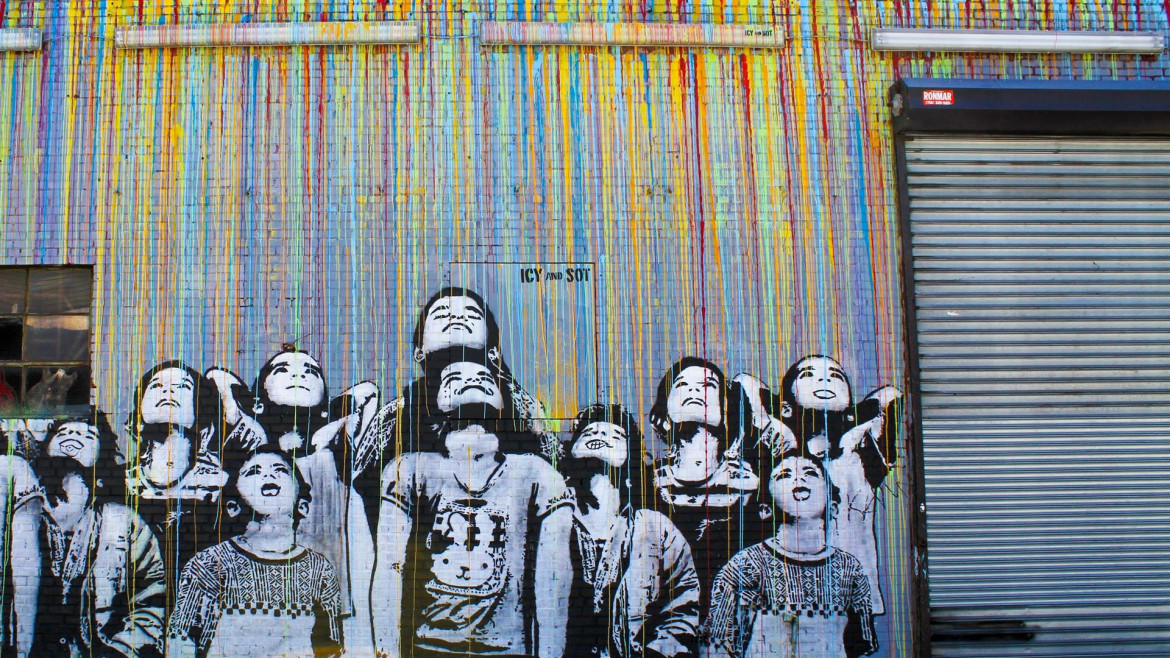Analysis
Campaign war over ‘citizenship income’ puts Italy’s poor on trial
Reactionaries have turned to delusional metaphors (‘state-provided methadone’) on the backs of the poor and unemployed. Even the OECD has intervened, suggesting the Draghi government cut subsidies to push people to work.

The Organisation for Economic Co-operation and Development intervened on Monday in the pre-electoral dispute on the so-called “citizenship income” ahead of Italy’s administrative elections in early October, which is dividing the parties into abolitionists and “improvers.”
In its 2021 report, the Paris-based organization gave another push in favor of the “restyling” of the law, something that has been announced repeatedly by Draghi, by the Minister of Labour Orlando and by Conte, who is trying to defend the last of the victories of the Five Stars. The OECD is once again advocating that Italy should “lower and taper off [citizenship income] benefits to encourage beneficiaries to seek employment in the formal sector” and also “introduce an in-work benefit for low-income earners.”
The first solution is a classic approach to governing the poor called “workfare”: cutting benefits to force recipients to look for work. However, such work is not available, and if it is, it’s precarious and soon runs out. Then, those who apply once again for a subsidy are assigned full responsibility for their condition and are attacked for “sitting on the couch all day.”
The second recommendation of the OECD is for a kind of “minimum income” that no political force is willing to pass into law. If they did, the working poor would also be attacked because they would be receiving a subsidy, and they would have to defend themselves against those who say that they should not be getting any money from the state at all if they are earning wages, even if those are pitiful.
It is impossible to escape from these vicious circles without a radical critique of current social and employment policies.
The analogy of the “citizenship income” with “state-provided methadone,” put forward by Giorgia Meloni (Fratelli d’Italia), is a highly controversial one. The image likens the poor to heroin addicts, and has led to righteous indignation from those who are working in addiction treatment.
“That is nonsense,” Massimo Barra told AdnKronos, the founder of the Villa Maraini Foundation of the Italian Red Cross which is working on this social problem. “We are talking about slogans and dogmas that are offensive to the 90,000 people who survive thanks to methadone in our country. This is the most important therapy available to heroin addicts, and vilifying it means vilifying those who use it. Nothing could be more offensive.”
After facing a backlash for her statement on Monday, Meloni switched tack: “Development and jobs are the means to free people from poverty, not keeping them on the state dole to make citizens dependent on politics, as the M5S and the left want to do.” This argument is the same as one made by many others: to escape poverty, what one needs is investment and jobs. But does that actually work? The problem arises when investments produce jobs with a low level of innovation and of poor quality, while the work remains scarce, precarious and does not guarantee the fundamental social protections: a basic income, a minimum wage, unemployment insurance or maternity leave. This is a recurring situation in Italy, where most of the jobs produced in the private sector are precarious and of short duration.
It is a Catch-22 situation: a job is how you manage to get out of poverty, but a poor-quality job only guarantees you’ll remain poor. The failure to consider this reality means that those who are now defending the “citizenship income” as a useful subsidy for an unlikely return to the labor market are taking an essentially similar position to those who are saying they want to abolish it (Renzi with his facetious proposal of a referendum, or Salvini who wants to put forward an “amendment”) in order to give that money to companies to create jobs. Those would be the same kinds of jobs that make the poor stay poor.
Another notion has returned to the forefront, one coined by the so-called “left” and then taken up by Renzi: “citizenship work.” It was invoked on Monday by the Minister of Economic Development, Giancarlo Giorgetti, according to whom we should “transform the citizenship income into citizenship work.” Now, it should be clarified whether this means coercing the poor into forced labor pure and simple, without even the current façade of “Projects Useful to the Community” (PUC) that is already enshrined into law. This involves compulsory work for up to 16 hours per week, unpaid, in order to qualify for a subsidy of less than €580 (per family, not per individual). If even this façade is eliminated, the result would be nothing more than slave labor in the name of “citizenship.”
Very likely, the “restyling” promised by the government will keep unpaid labor in the current form, and will try to give a semblance of efficiency, even if merely statistical, to the “active labor policies” that will be included in the reform of the social shock absorbers included in the budget law. After that is approved, the classist guerrilla warfare between the parties will see a temporary respite, but it will begin again soon. Meanwhile, the political violence of the debate is having the effect of inflicting a stigma on the poor, precarious and unemployed by keeping them trapped in silence and shame.
Originally published at https://ilmanifesto.it/reddito-di-cittadinanza-la-guerriglia-pre-elettorale-tra-abolizionisti-e-miglioristi/ on 2021-09-07
